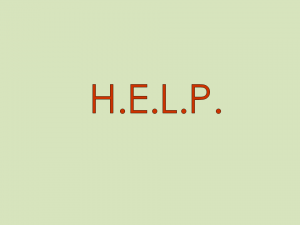One of the most rewarding aspects of being a college professor is seeing the creative abilities of students in action. Unlike established practitioners, students often have not succumbed to artificial constraints placed on executing projects. If you have ever been on a project team, you have very likely heard the words “That won’t work- we tried something like that five years ago, and it failed miserably” or some similar insight. In contrast, students tend to not know what can’t be done, what has failed previously, or other cautionary advice.
I saw this characteristic of college students in action again this week. Students in my Promotion class created branding strategy ideas for a professional development program our department will offer to our majors. Teams came up with brand name, logo, tagline, and positioning strategy. All 10 projects exhibited creativity and a sound understanding of brand concepts. One proposal in particular drew the attention of my colleagues who viewed the presentations. The group’s idea for a brand name for the professional development program was H.E.L.P. Interesting, but does “help” carry any negative connotations? Is it a sign of weakness to admit we need help? Will students be too proud to ask for help? After all, they want to get a job,not get help.
H.E.L.P. is Good
As I reflected on the questions about the suitability of H.E.L.P. as a brand name for our professional development program, I was conflicted whether it would send a positive message to students. Regardless, of whether H.E.L.P. is selected as the brand name, there is no disputing the team’s assertion that students’ personal brands need help, or should I say H.E.L.P. Specifically, H.E.L.P. includes:
- Hearing – Take advantage of opportunities to hear the perspective of professionals who were once in your shoes. Attend guest lectures and seek out student professional organizations that have outside speakers come to speak to the group. Also, take advantage of podcasts, using your morning commute to listen to experts talk about trends in your field rather than listening to your favorite playlist in iTunes yet again.
- Experiencing – Participate in student organization projects, take advantage of volunteer opportunities, and pursue an internship. You can grow as a person by challenging your existing comfort zone. Also, the experiences cited offer networking opportunities in the community and with prospective employers.
- Learning – Commit to be a lifelong learner. Your formal education may end, but the importance of learning never goes away. According to the Pew Research Center, 23% of Americans did not read any books last year– don’t be part of that statistic! Seek out the expert voices in your field, whether they publish books, articles in trade magazines, or post to blogs. Embrace learning for its benefits but also for the joy that it can bring.
- Preparing – Hearing, experiencing, and learning are all forms of preparing. This dimension of professional development is a mindset. You get the job that you want with an employer that you desire by preparing to take advantage of such an opportunity. It likely will not fall into your lap; you will prepare to position yourself by helping, experiencing, and learning.
Ask for Help
Like any other endeavor in life, your talents and abilities can only take you so far. You can benefit from tapping resources around you- people, organizations, books, online media, and more. Everyone’s personal brand can benefit from H.E.L.P. To my students who came up with this idea- Tobias, Alaya, and Lauren- I commend you for the creativity and thought you put into your branding strategy.
I finish with a request- please share your opinion on the suitability of H.E.L.P. as a brand name for the new professional development program of the Department of Management and Marketing at Middle Tennessee State University. Does H.E.L.P. communicate the benefits of professional development to students? Would you have concerns about H.E.L.P. being interpreted negatively by the target audience (students)?

